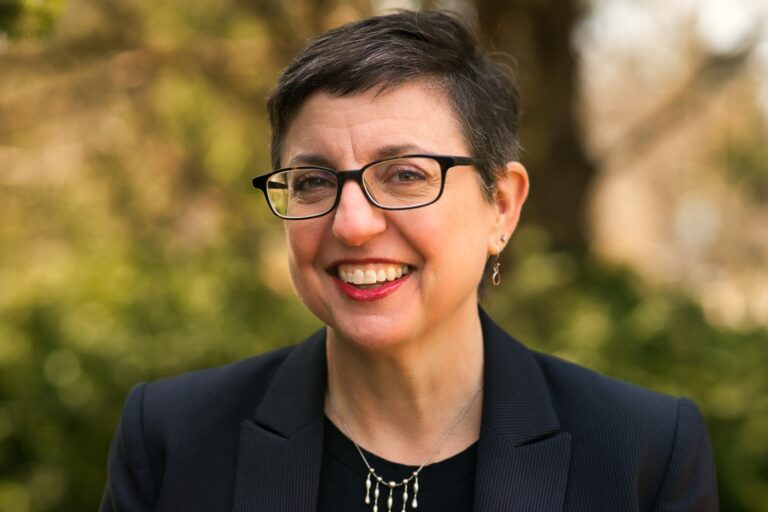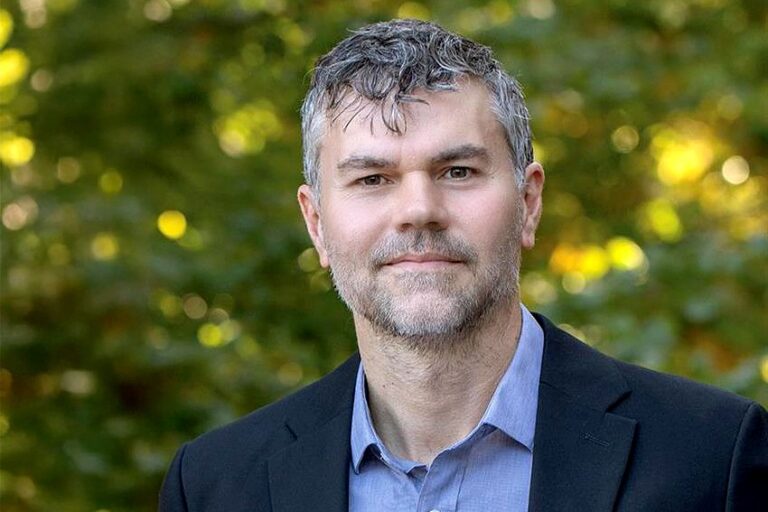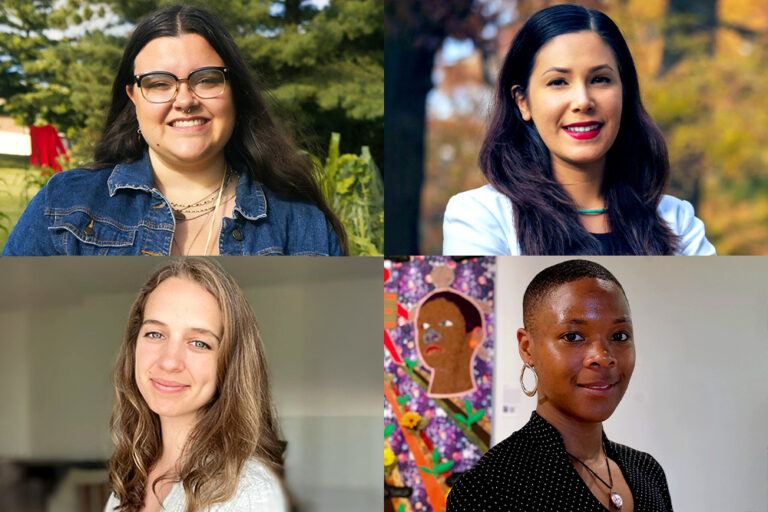With a passion for Black feminisms, Bailey Griffin, an MSU sophomore, said it’s an honor to be among the first group of students at Michigan State University to declare African American and African Studies (AAAS) as their major.
The newly established Bachelor of Arts degree in African American and African Studies is being offered for the first time this year through the Department of African American and African Studies in the College of Arts & Letters, setting the stage for generations to come.
“I see so much excellence in my professors and peers,” Griffin said, “and I am excited to see what the department becomes with the remaining time I have here and beyond.”

With AAAS classes ranging from Afrofuturism studies to Black spirituality and religion, Griffin noted that the classes unite the students.
“I enjoy being in classes with predominantly Black students who share similar experiences with me,” she said. “It is almost like a breath of fresh air from my other classes where I am, more often than not, the only Black student.”
The first meeting AAAS majors and faculty had with each other took place in early September in the new AAAS space located in North Kedzie Hall, which just opened this semester.
“I enjoy being in classes with predominantly Black students who share similar experiences with me.”
“Everyone was eager to discuss plans for the future,” Griffin said about that first meeting. “We shared stories, laughter, joy, and overwhelming thankfulness to have a space curated for us. It was the first time I felt I belonged in a space at MSU.”
The newly renovated 8,400-square-foot space that the AAAS Department now calls home officially opened Nov. 17 with a celebration event called “The Ascension of AAAS.”
“The new space in Kedzie is open to many possibilities,” Griffin said. “I know the department has intentionally made things comfortable for students by including a café and recording studio, and plan to add more elements to the space. I look forward to using the space and being amongst my peers and professors in a safe academic environment.”

Pursuing her love for Black feminisms, Griffin said she first found this passion after reading a quote from the Combahee River Collective Statement her freshman year. That Black feminist group stated: “If Black women were free, it would mean that everyone else would have to be free since our freedom would necessitate the destruction of all the systems of oppression.”
“This sparked my passion for fighting for the liberation of Black women,” Griffin said. “The best way that I know how to do this is through academics.”
Griffin currently is learning about the importance of community and healing generational traumas as well as Black history and Black gender studies. She plans on using this knowledge to pursue a master’s and Ph.D. program focusing on Black women and Black feminisms.
“I like that the program is Black through and through, meaning the faculty and staff are Black, the majors are Black, and the content is Black. If you are a Black student, it is one of the safest communities of learners and educators on campus.”
Griffin mentioned that when she tells others about her career choice, people often ask how she plans on making money with this major.
“I usually avoid the conversation of money because many people are limited in what they perceive as careers based on their capitalistic ideas of success,” she said. “I redirect the conversation to discussing my plans in academia, research, and community-based learning.”
For now, Griffin says that being in the AAAS program has sprouted a well-rounded community for her.
“I like that the program is Black through and through, meaning the faculty and staff are Black, the majors are Black, and the content is Black,” she said. “If you are a Black student, it is one of the safest communities of learners and educators on campus.”


